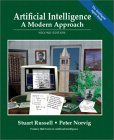Students are expected to have read and abide by the University
statement on Academic Integrity available on page 58 of the Saint
Louis University's Undergraduate Catalog.
A more detailed policy statement is given by
the College of Arts & Science, which apply to this course
as well.
In addition to those general statements, we wish to discuss
our policy in the context of this course.
When it comes to learning and understanding the general
course material, you may
certainly use other reference materials and you may have
discussions with other students in this class or other people
from outside of this class. This
openness pertains to material from the text, practice problems,
general syntax and use of a programming language or other computing
tools.
However, when it comes to work that is submitted for this
course, you are not to use or to search for any direct or
indirect assistance from unauthorized sources, including but not
limited to:
- past students, whether from this school or other schools
- other acquaintances
- other texts or books
- online information other than that referenced by course materials
Acceptable sources of information include
consultations with the instructor, as well as any
materials explicitly authorized in an assignment.
Even in these cases, if you receive significant help you should
make sure to document both the source of the help as well as the
extent.
For most of the assignments in this course, students will be
encouraged to form groups. In this case, conversations between
partners is both permissible and required, but conversations
with members of other groups is still forbidden. Furthermore,
all students within a group are expected to contribute
significantly to the development of the submitted work. It is
unethical to allow a partner to "sign on" to a submission if
that partner did not significantly contribute to the work.
Any violations of these policies will be dealt with seriously.
Penalties will apply as well to a student who is aiding another
student. Any such violations will result in a minimum penalty of
a zero on the given assignment that cannot be dropped, and
severe or repeated violations will result in an immediate failing
grade in the course. Furthermore all incidents will be reported
in writing to the Department and/or the Dean, as per the College
procedure.
All exams must be taken promptly at the required time.
Requests for rescheduling an exam will only be considered
if the request is made prior to the start of the exam, or
else in an ``emergency'' situation with appropriate
documentation.
For assignments, we wish to allow
students to continue to
work comfortably beyond the official deadline when a
little more time will result in more progress, while at
the same time discourage students from falling
significantly behind pace and jeopardizing their success on future
assignments. Our solution is the following exponentially
decaying late formula (some have suggested that we should
offer extra credit to anyone who fully understands this
formula).
We will consider an assignment submission ``complete''
when any part of the assignment is last submitted or
modified. Any assignment that is not complete promptly by
its due date and time will be assessed a penalty based on the
formula
S=R*e-h/173,
where S is the grade given, R is the grade
the work would have received had it been turned in on time,
and h is the amount of time (in hours or fractions
thereof) that the work was late.
Examples:
- work turned in 1 hour late receives 99.6% of
its original credit
- work turned in 5 hours late receives over 97%
credit
- work turned in one full day late receives less than 88%
credit
- work turned in two full days late receives less than
76% credit
- work turned in five days late receives less than 50%.
The above policies will be waived only in an ``emergency''
situation with appropriate documentation.

